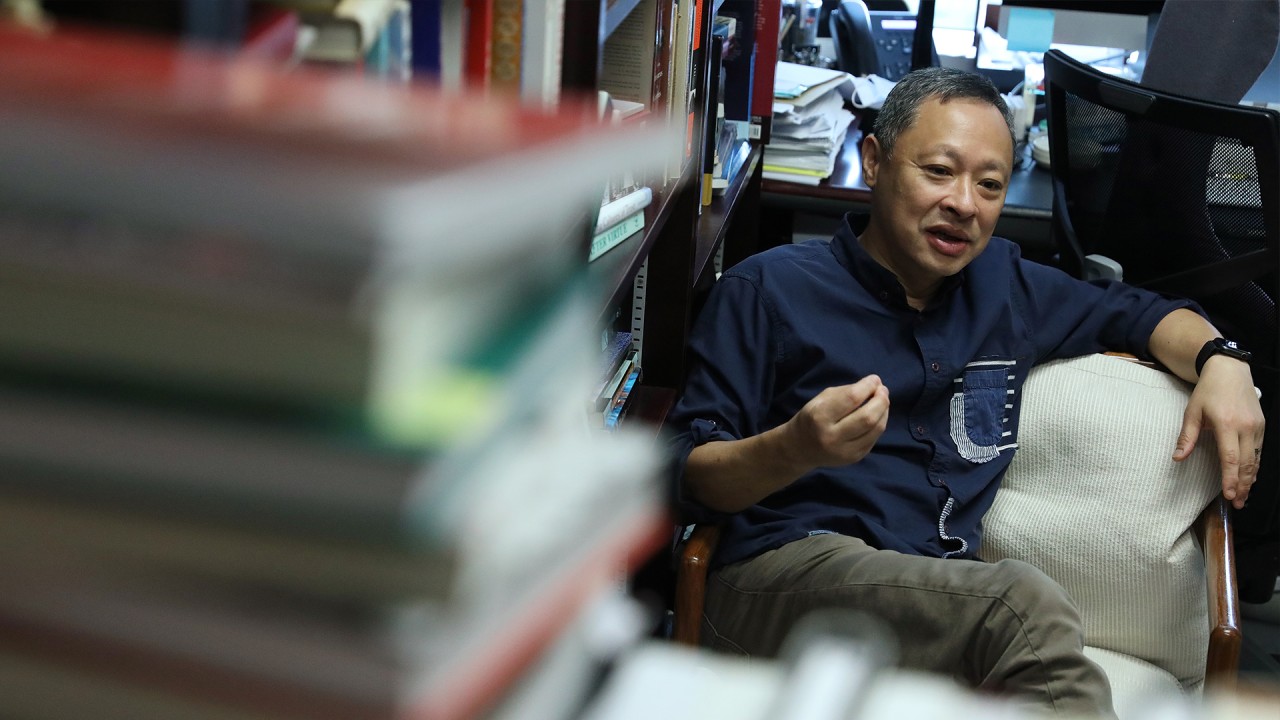
University challenge: HKU must work to restore its reputation
- The sacking of academic Benny Tai, one of the founders of the 2014 Occupy civil disobedience movement, has come at a time when society is already divided, with some now questioning the institution’s independence
Sacking an employee in the wake of a criminal conviction may not necessarily seem unreasonable from the perspective of management.
But the decision by the University of Hong Kong’s council to dismiss associate professor Benny Tai Yiu-ting, who was sentenced to 16 months in prison last April for two public nuisance offences in relation to the 2014 Occupy protests opposed by Beijing, has deepened concerns among academia in our polarised environment.
The move by the university’s governing body is certainly controversial, but perhaps unsurprising amid recent political developments. Without divulging Tai’s identity and the details of its deliberations, the university issued a statement saying it had acted according to its ordinance in light of a court judgment and initiated the termination of appointment for “good cause”.
It stressed the proper procedures had been followed. But Tai, a legal scholar, said the decision was made by “external forces” via their “agents”. He said he would lodge an appeal to Carrie Lam Cheng Yuet-ngor, the city’s chief executive and chancellor of the university.
“Though I know this is a futile process, Lam cannot evade her responsibility of infringing academic freedom,” he said. The option of seeking a judicial review is also under study.

02:13
University of Hong Kong sacks Occupy leader Benny Tai
The city has indeed become so politically divisive that whichever way the council had ruled, it would have bound to upset certain quarters.
The different views over Tai’s teaching career and his role in the 2014 civil disobedience movement are reflected in the opposing positions of the council and the university’s senate, as well as the mixed reactions in society.
Some say it is only fair for Tai to be fired; others see it as political interference.
Beijing’s views were made plain in a statement swiftly issued by its liaison office in Hong Kong, which backed the dismissal as an act punishing “evil” and upholding justice.
Benny Tai to challenge Hong Kong’s leader over university sacking
Tai has long been seen as the culprit of the Occupy protests that sought to push for greater democracy by paralysing the city’s financial district.
“Tai has used the sacred position of an educational institution to spread fallacies and confuse right and wrong, as well as promote illegal [activities] that misled and poisoned [the minds of] a group of young people,” an office spokesman said.
The response inevitably affected perception of the council’s independence. This is not the first time the body has stirred a dispute over appointments. Historically, universities and public affairs are often closely intertwined. But it is for the sake of academic freedom that the campus should be free from politics.
The city is going through sensitive times. How to restore the institution’s image and uphold autonomy and freedom amid escalating political tensions remains a challenge to the university and academia.

